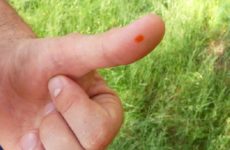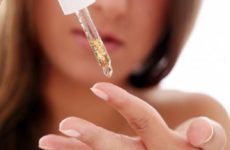Warts in intimate places cause more anxiety than in other parts of the body. Often, having noticed such a pathology, a person is embarrassed to see a doctor, although most manifestations are quickly and successfully treated.
The danger of warts in intimate places should not be underestimated, since not all of them are benign, some can be quite dangerous.

Содержание:
Causes
Warts appear as a result of damage to the human body by the papillomavirus, infection with this virus occurs through sexual contact through small cracks in the skin and mucous membranes.
The reasons for the growth of warts in the intimate area are:
- non-compliance with personal hygiene;
- indiscriminate sexual relations;
- frequent change of sexual partners;
- lack of protective contraceptive measures;
- earlier initiation of sexual relations.
People at risk:
- having concomitant infections – thrush, herpes, gonorrhea, syphilis;
- with chronic pathologies of the immune system;
- often exposed to stress, malnourished, little rest;
- having dysbiosis of the microflora of the genital mucosa;
- long-term use of hormonal drugs.
Symptoms of pathology in men and women
The clinical signs of warts in intimate places are not always pronounced, in addition, the symptoms may vary according to the type of formation, but the general signs can be considered:
- a feeling of irritation and itching, which at first may be quite weak, but over time its intensity increases;
- clinical signs that are characteristic of viral respiratory diseases;
- discomfort and pain during sexual intercourse;
- painful urination;
- the presence of mucous secretions with an unpleasant odor;
- if the wart becomes damaged, spotting may occur.

When the warts of the male penis are affected, the formations look like small nodules with grooves, as a rule, they are pink, beige or light brown.
If the anus is affected, the growths look like scallops, and they are the most commonly damaged.
As for women, there may not be any obvious signs in this case, and warts can only be detected with the help of a doctor.
Genital warts
These neoplasms resemble cauliflower forks, they can be multiple or single, the size varies from 1 to 10 mm. Most often, genital warts appear in the anal or genital area, but sometimes it can occur in the perineum or groin.
The color of the neoplasm is most often flesh, sometimes pink or red. These warts are very prone to injury, and are almost always accompanied by itching and discomfort.
When the wart is actively growing, a person may be disturbed by a burning sensation, itching, pain, and an unpleasant odor. Genital warts can become secondarily infected, and if it is localized in the urethra, it can interfere with the normal excretion of urine.
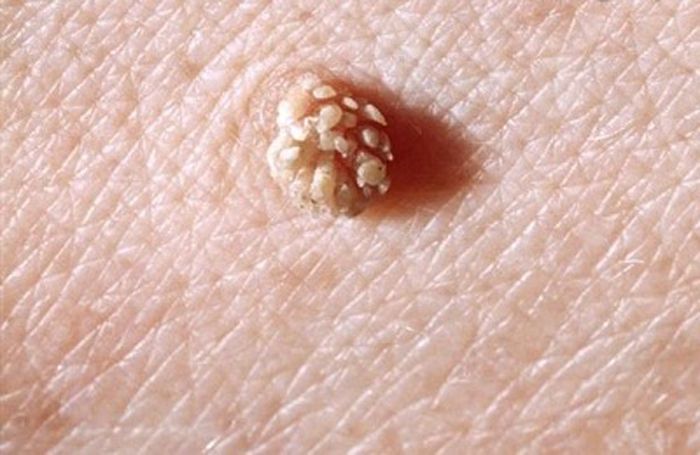
flat warts
These spots are multiple or single. They are always localized on the mucous membrane of the genital organs. The color can be different – pink, white, gray, red, brown. If a flat condyloma is located on the walls of the vagina or on the cervix, it does not manifest itself in any way.
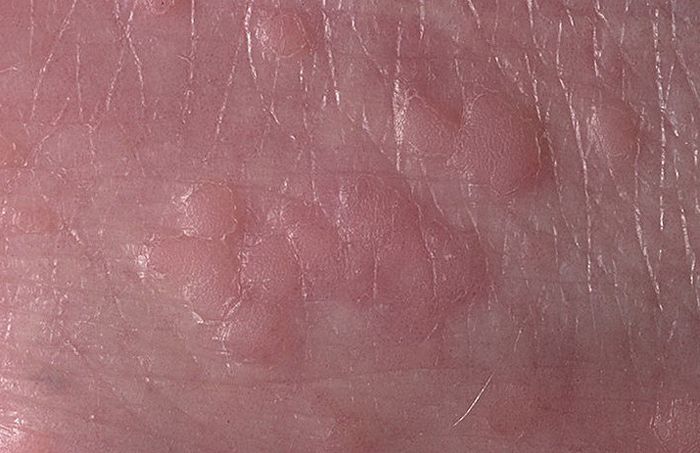
Flat papilloma
Papular warts
These are round growths without a stem, multiple or single. They protrude slightly above the skin surface, have pigmentation or hyperkeratosis. Most often located on the labia majora, on the scrotum, on the penis , in the perineum, on the pubis or in the perianal zone.
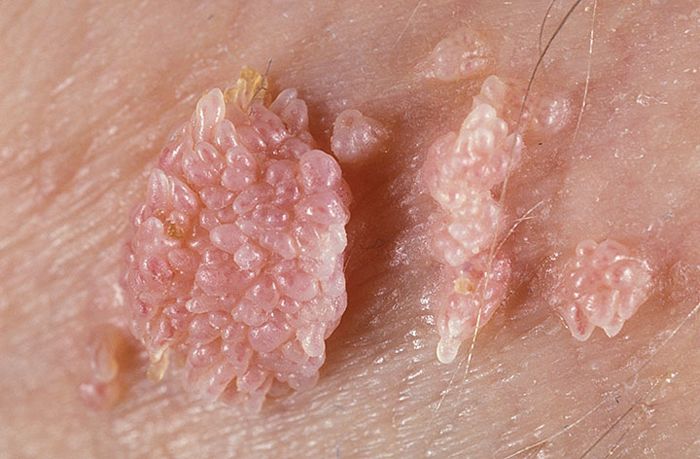
intraepithelial neoplasia
These are dangerous warts, they are provoked by a strain of a virus of high oncogenic danger, these neoplasms are divided into:
- boweno papulosis;
- Bowen’s disease.
Bowenoid papulosis
Multiple or single formations, the size of which can be from a few mm to 3.5 cm. The color of the plaques can be pink, yellow or purple.
The consistency of neoplasms is often smooth, but sometimes it can be warty. Individual papules may merge with each other and form plaques with clear boundaries.
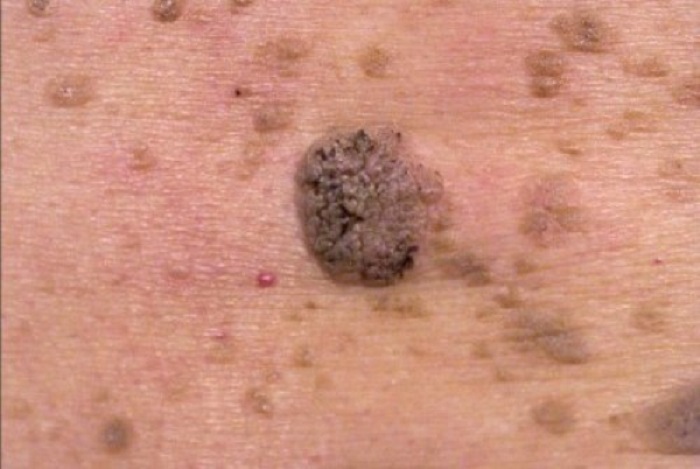
Bowen’s disease or intraepidermal cancer
This is a round spot with uneven borders, which gradually turns into a plaque. If this neoplasm occurs on the skin, it has a black-brown and gray color, if on the mucous membrane it is white, red-orange or brown. Growing, some parts of the wart atrophy, hyperkeratosis occurs. The size of the neoplasm is from 2 mm to 5 cm.
Giant condyloma Buschke-Lovenshtein
This precancerous neoplasm is rare, and in most cases is observed in men on the penis. It is preceded by genital warts, which grow rapidly and coalesce.
The wart has a wide base, distinct furrows and villous growths. As the wart grows, it becomes covered with scales and smells bad. This neoplasm can transform into squamous cell carcinoma.
Which specialist to contact?
The problems of warts in intimate places are dealt with by a dermatologist, gynecologist or urologist.

Diagnosis of the disease
In open areas, the detection of genital warts is not difficult. In the vagina, they are diagnosed during a gynecological examination with mirrors or using a colposcope.
Warts in the urethra are determined by a urethroscope, and in the anus by an anoscope. The nature of the wart is determined by a dermoscope, and, if necessary, a biopsy and histological analysis are performed.
How to get rid of growths in this area?
You can get rid of warts in intimate places with the help of medicines, as well as hardware and surgical methods. In some cases, the use of folk remedies is allowed. Also find out how warts appear on the penis , diagnosis and treatment of the disease.
medical therapy
It is assigned only by a qualified specialist. Medicines affect the problem from the inside – they improve the protective functions of the body and prevent the reproduction of the virus.
The basis of therapy is the use of antiviral drugs, and immunomodulators are also mandatory.

Immunostimulating agents of local action
Local immunomodulators are used to increase immunity directly at the site of warts, in this case, in intimate places.
The main active component of this group of drugs is purified interferon obtained from human blood cells. Interferon cells inhibit protein synthesis and resist the reproduction of the virus.
Quite often, interferon preparations have an antiviral effect, for example, like Acyclovir and Viferon.
Aldara is a cream whose main active ingredient is imiquimod, which stimulates the production of its own interferon. This tool gives excellent results in the treatment of the consequences of the papillomavirus.
Homeopathic remedies can also be attributed to local immunomodulators , which contain extracts of aralia, Chinese magnolia vine, echinacea and ginseng.
Antiviral agents for external use:
- Viferon.
- Acyclovir.
- Panavir .
- Vartek.
- Oxolinic ointment 3%.
- Epigen intimate .
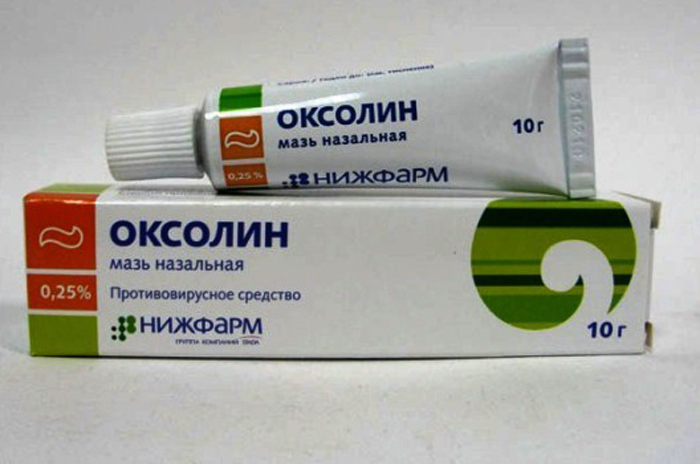
Folk methods
Alternative methods can be used only with the permission of a doctor. Most often they are recommended as adjunctive therapy.
Tray
Baths are prepared from various herbs that have a drying, soothing, antibacterial, antiviral and cleansing effect, for example:
- dandelion root, lemon balm, nettle, horsetail;
- eleutherococcus root, angelica, licorice, aralia;
- birch leaf, oregano, thyme, wormwood, St. John’s wort;
- leuzea root, marshmallow, licorice, aralia, elecampane.
Compress
For compresses, you will need a clean bandage and a remedy – a decoction or juice of medicinal plants (aloe, kalanchoe, garlic).
The bandage is impregnated with the selected agent and applied to the formation, for 20-30 minutes. In addition, slurries can be prepared from plant components and applied to growths.
potato juice
It is used as a compress. The bandage is soaked in the juice of raw potatoes, and applied to the warts for 20 minutes. After that, the intimate organs are well washed with running water. The procedure is recommended to be carried out 1 time per day for 3 weeks.

douching
It is prescribed for women with vaginal neoplasms. For this, herbal decoctions are used, from the plants listed above.
Aloe juice
This remedy is recommended to treat warts on the penis . You can squeeze the juice from a leaf of a plant and soak a bandage with it, or you can simply apply a leaf cut along the neoplasm to the neoplasm. Keep the compress should be at least 2-3 hours. The procedure is carried out daily 1 time per day.
Treatment in the clinic with hardware and surgical methods
These are the fastest, most effective and safest methods of treatment, for this they use various methods, each of which has its pros and cons. The choice of the optimal method for removing warts is best left to a qualified specialist.
Laser
Most often prescribed when the disease is accompanied by an inflammatory process. Minimally invasive intervention, healing occurs in the shortest possible time. The procedure is painless as it is performed under local anesthesia. The laser beam is directed to the wart and burns it out.
The duration of the procedure is from 10 minutes to half an hour, depending on the number of neoplasms. After removal, a thin crust remains at the site of the wart.
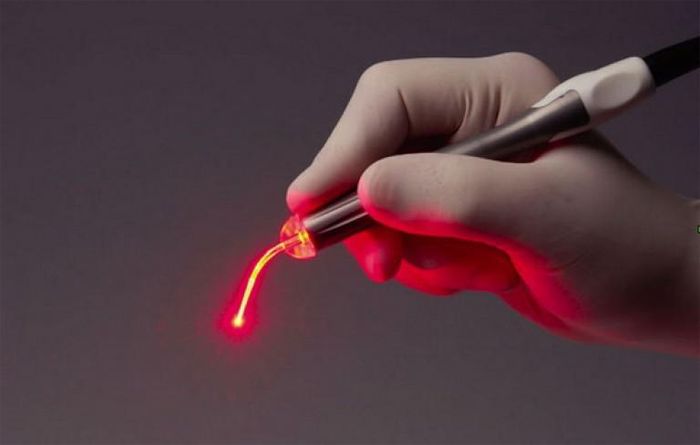
Cryotherapy
The neoplasm is exposed to low temperature nitrogen. As a result, the neoplasm freezes and falls off.
This is the most commonly used technique, but at the same time a little painful – after removing the wart, a bubble forms, which eventually disappears, leaving new skin underneath.
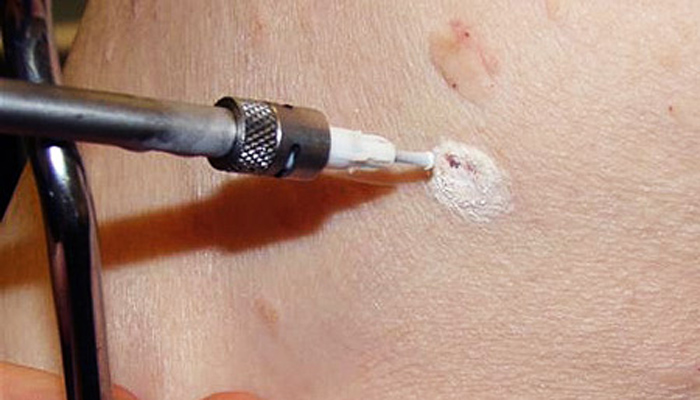
Electrocoagulation
The procedure uses an electric current. Condylomas are cauterized with a special tool.
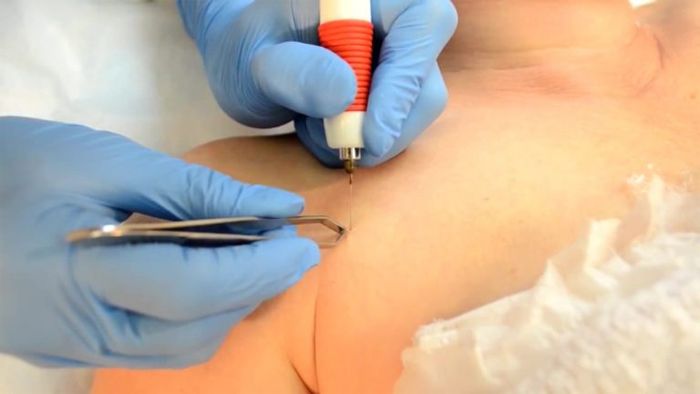
Radiotherapy
The neoplasm is removed with a radioknife. Often this method is combined with electrocoagulation. I must say that after this method, a long-term non-healing wound remains on the mucosa, so it is rarely used.
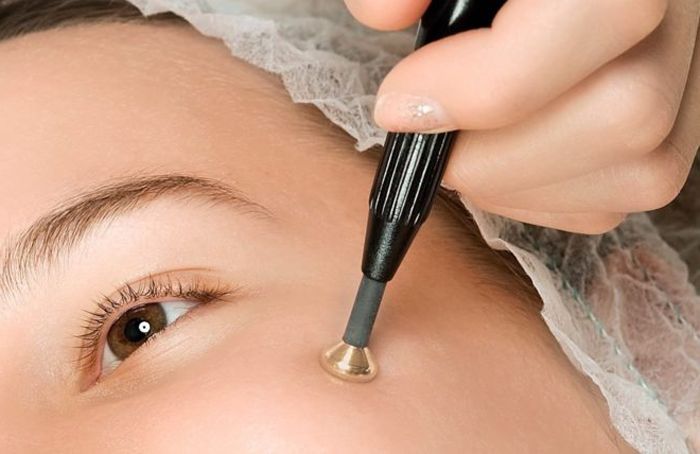
mechanical excision
Currently, it is used infrequently, since this method is quite traumatic. The neoplasm is excised with a scalpel, and modern medicine has more painless and safer methods.
As for the removal of genital warts with pharmaceutical products, such procedures should be prescribed and carried out by a competent specialist, most often cytotoxic drugs are prescribed for intimate places:
- Vatek, Supercleaner, Kondilin . These funds cause necrotic processes of warts, and the growths disappear.
- 80% solution of triacetic acid – provokes the decomposition of neoplasm tissues. It is used very carefully, as it can cause very serious burns in the intimate area. Before the procedure, it is recommended to treat the affected area with a greasy cream or petroleum jelly.
- Solcoderm – it also contains acids that burn warts. These are oxalic, nitric, lactic, acetic acid, as well as copper nitrate. Removal of warts in intimate places with the help of this tool is also associated with the risk of burns, so it is better if the procedure is carried out by a doctor. Are rashes dangerous?
Are rashes dangerous?
Without treatment, warts in intimate places can lead to the following complications:
- if the neoplasm is located in the urethra, stagnation of urine and difficulty with urination may occur;
- warts can become damaged and infected, which can lead to sepsis;
- possible spread of HPV to other areas of the skin;
- warts can be harbingers of oncology and transform into cancer.
Prevention of occurrence
The main measures to prevent the appearance of warts in intimate places are the purity of sexual relations, proper nutrition, hardening, and physical activity.
Also, we must not forget that it is unacceptable to use other people’s towels, linen and other personal items of other people. Extra care should be taken in public places – saunas, baths, swimming pools, showers, toilets.
The most reliable protection against the virus is vaccination ( Gardasil ). However, this vaccination is recommended before the onset of sexual activity. The fact is that the papilloma virus is very common, it affects 80% of the inhabitants of the earth.
Its peculiarity is that, having entered the human body once, it remains in it forever. The only thing that can be done is to stop its manifestations.
Since the infection with the virus occurs mainly through sexual contact, with the onset of sexual activity there is a high risk of infection and the vaccine will already be powerless against the pathological agent.


